Senate leaders were engaged in last-ditch efforts to secure a fiscal cliff deal Saturday, as President Barack Obama prepared to strong-arm Congress into an up-or-down vote on a back-up plan to avert the looming economic crisis.
With just two days to go until a year-end deadline triggers a series of damaging spending cuts and tax increases for nearly all Americans, the president used his weekly radio address to again urge action in Washington.
"Leaders in Congress are working on a way to prevent this tax hike on the middle class, and I believe we may be able to reach an agreement that can pass both houses in time," Obama said.
It echoed comments made after a crisis meeting in the White House on Friday in which the president said he remained "modestly optimistic".
But failing any agreement, the White House is putting into motion plans to force a vote in Congress on scaled-back measures that would avert the immediate impact of heading over the fiscal cliff.
That "up-or-down vote on a basic package" would stop tax hikes for middle-income Americans, while "laying the groundwork for future progress on more economic growth and deficit reduction", Obama said Saturday.
The president has repeatedly said that he believes the stop-gap measure would clear both houses. But he made it clear that if the emergency measures failed to pass through Congress, then the blame would lie with obstructionists in the Senate and House of Representatives.
"If they still want to vote no, and let this tax hike hit the middle class, that's their prerogative – but they should let everyone vote," he said during Saturday's address.
By threatening to force a vote, the White House is putting pressure on the leaders of both sides in Congress to find a compromise by the end of the weekend at the latest. On Sunday, the House of Representatives will reconvene. House speaker John Boehner has warned colleagues to expect to work through the New Year.
The two men tasked with coming up with a deal are Harry Reid, the Democratic Senate majority leader, and Mitch McConnell, who heads the Senate's Republican minority.
Both men were summoned by Obama to a White House meeting on the fiscal cliff crisis on Friday, alongside Boehner and House minority leader Nancy Pelosi. Treasury secretary Tim Geithner was also in attendance.
Both sides emerged after an hour and 15 minutes of talks with no deal, but in an apparent mood to work on a solution.
McConnell said he was "hopeful and optimistic". Obama said the meeting had been "good and constructive".
But in comments that displayed his frustration at Washington's continued brinkmanship over fiscal and budget-related deadlines, he added: "This is déjà vu all over again."
He also warned: "The American people are watching what we do here. Obviously their patience is already thin." Further pressure for a deal is expected to be exerted by the president on Sunday, when he will make his case during an appearance on NBC's Meet the Press.
If no deal is done, 88% of Americans will see their taxes rise on January 1, a wave of deep spending cuts will start to take effect, and 2 million long-term unemployed people will lose their benefits.
The main sticking point appears to be the threshold for raising income taxes on households with upper-level earnings.
Obama's initial plan was for all earners of $250,000 a year and above to shoulder a greater burden. Meanwhile, many Republicans in the House have indicated that they will vote against any increase in tax. Analysts believe that any deal could be anchored on raising taxes for households earning more than $400,000 or $500,000 a year, but it remains to be seen if such a compromise could win the backing of both houses.
"Whatever we come up with is going to be imperfect. Some people aren't going to like it, some people will like it less," Reid said on Friday.
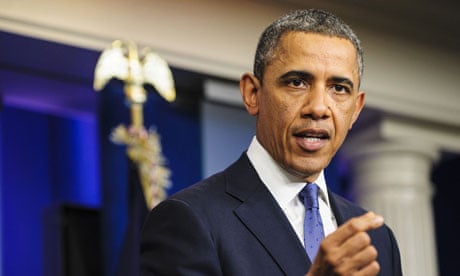
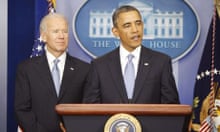
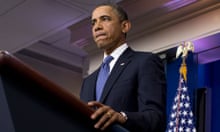
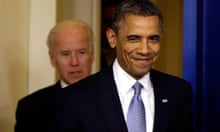
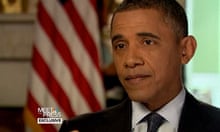
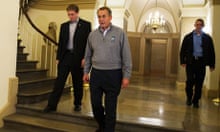
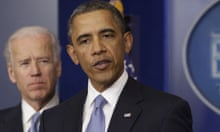
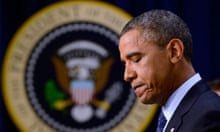

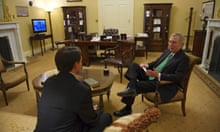
Comments (…)
Sign in or create your Guardian account to join the discussion